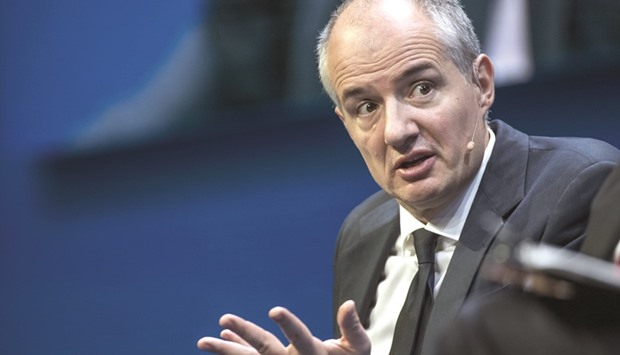Emmanuel “Manny” Roman, the new chief executive officer at Pacific Investment Management Co, plans to add 100 employees over the next year in a renewed push for growth at the bond fund giant.
Instead of focusing on cutting costs and fees to compete, Pimco intends to spend on hiring and technology to become better, Roman, 53, said in an interview during the Milken Institute Global Conference in Beverly Hills, California – six months to the day after he took charge of the firm.
“As we become more of a technology company and more ‘quanty,’ we also face different competitors,” Roman said. “The issue is not to compete for someone to come to us from Goldman Sachs. It’s against SpaceX,” he said, referring to Elon Musk’s spacecraft firm.
Roman, whose firm had more than 2,150 employees as of March 31, has been recruiting people with skills in quantitative analysis and risk management, as well as history majors, because he wants diversity of thinking to come up with the best ideas for trades or products.
He’s also looking for those with the passion to go to work at 5:30am, so they can be at Pimco’s Newport Beach, California, headquarters before markets open in New York. Competition for new hires comes from Silicon Valley companies such as Facebook and Alphabet, he said.
Roman is also looking overseas for expansion, especially in Asia and Latin America. China remains a challenge to enter, because of restrictions on foreign control of asset managers.
More than a quarter of Pimco’s assets belong to parent Allianz, the Munich-based insurer that bought Pimco in 2000.
Roman worked at Goldman Sachs Group for 18 years before leaving in 2005 to head hedge fund firm GLG Partners. Man Group acquired GLG in 2010 for $1.6bn, and Roman rose to CEO of the combined firm.
Pimco’s assets have stabilised at about $1.5tn after haemorrhaging that followed the acrimonious September 2014 exit of longtime Chief Investment Officer Bill Gross. In March, the firm settled a lawsuit over the legendary fund manager’s ouster, formally recognizing his role as a co-founder. “It’s important to look forward and not backward,” Roman said. “We shook hands and we’re glad this is behind us.”
While active fixed-income funds industrywide reported net inflows in 2016 and this year’s first quarter, they’re still losing market share to index funds, which are getting even higher deposits.
One reason for optimism about the future: Roman cited research by Pimco that found that active fixed-income beat their benchmarks at a higher rate than stock pickers.
At Pimco, about 83% of funds have better five-year records than their benchmarks, Roman said. The $79bn Pimco Income Fund, headed by Gross’s successor as CIO, Dan Ivascyn, has better three- and five-year returns than 99% of its Bloomberg peers. It raked in more new assets than any actively run mutual fund last year and in the first quarter of 2017. Outflows have slowed at the $74bn Pimco Total Return Fund, once the world’s largest mutual fund, as its three-year record beat 71% of its peers.
“Performance drives everything,” Roman said. “We live and die by the numbers. We’re never going to be the biggest, but hopefully we’re going to be the best.”
Roman, a native of France, came to Pimco from London-based Man Group, which he steered to become the world’s largest publicly traded hedge-fund firm through a series of acquisitions.
In today’s market, asset managers are so costly that it’s difficult to find significant acquisitions that can add to a firm such as Pimco, he said. “We expect to grow organically,” Roman said.
Still, he expects to see more consolidation among rival money managers, such as those with $100bn in assets, as they fight to survive in an era of falling fees and rising costs for talent, technology and compliance.
“I think those will be somehow traumatic for the end investors,” he said. “Because it’s for the shareholders, not for the investors.”
With a background in hedge fund management, Roman is looking for growth in Pimco’s privately held alternative investments, which comprise about $27bn in real estate, distressed assets and hedge funds.
The company recently hired Greg Hall, a former Blackstone Group hedge fund product manager, to head up private strategies.

Roman: Looking overseas for expansion.
